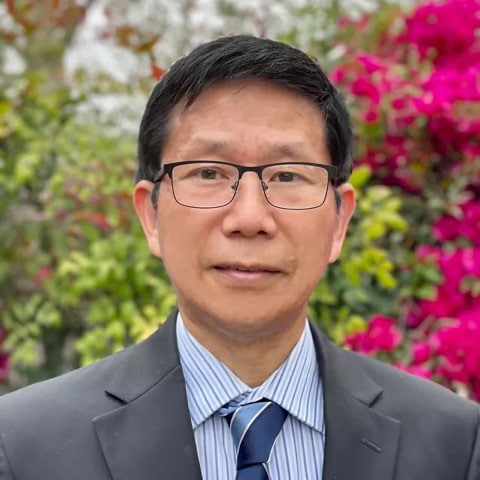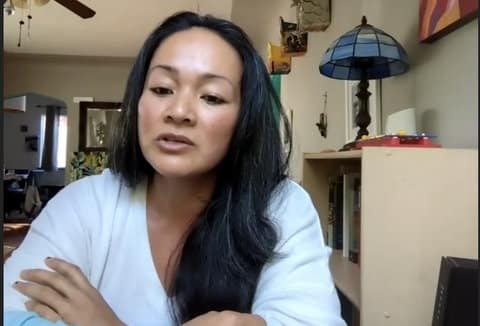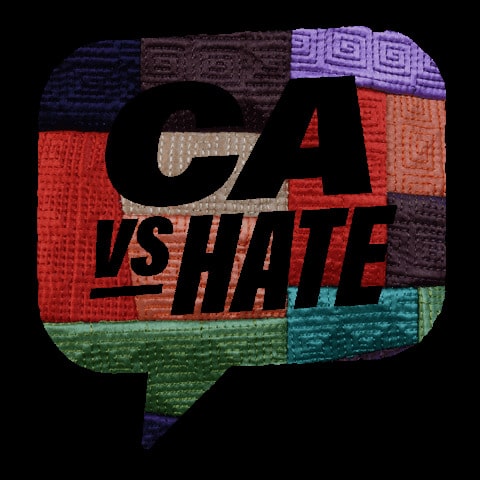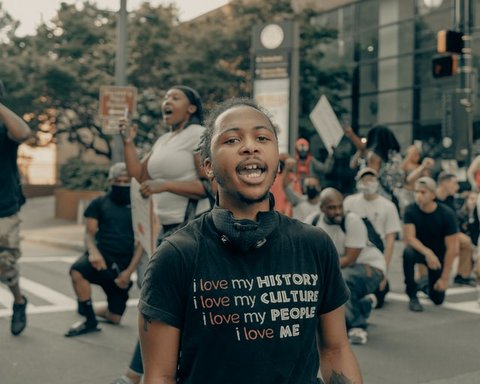
20 Nov Q&A: Nonprofit Gives Mental Health Support to Bay Area Chinese Community

Steven Chen is the deputy director of Mental Health Association for Chinese Communities. (Photo via mhacc-usa.org)
Interview, Malcolm Marshall
Editor’s Note: Mental Health Association for Chinese Communities is a nonprofit organization whose mission is to raise awareness of mental health within the Chinese community. The CC Pulse spoke with deputy director Steven Chen about the work the group is doing around supporting victims of hate crimes and incidents and the services they offer for those affected. This conversation has been edited for length and clarity.
For more information or support, you can visit https://www.mhacc-usa.org/ or call the MHACC Mental Health Warm Line at 1-800-881-8502. Additionally, if you have been the victim of or witness to a hate crime or incident, you can submit an anonymous report to California vs. Hate, which is not affiliated with law enforcement, and get support. Please visit https://www.cavshate.org/ for more.
The CC Pulse: What kind of services do you offer for victims of hate crimes and incidents?
Steven Chen: So there are several kinds of impacts from a hate crime. First is the individual, who actually who has been impacted by the hate crime directly. Then there is the second, like relatives or family members who are not directly impacted [but] because of the hate crime, they hurt. They will endure the mental health stress. If somebody is directly impacted, of course, they will have severe mental health stress, right? So we help those people. But the larger group — the family, friends who endured mental health stress — we tend to help those people too. They’re not necessarily directly impacted, but they are impacted. The next group is even larger. They are not directly impacted or family or friends, but they heard the news, they are watching the videos, and they worry. People even tend not to come out to the street, because they’re worried. So all actually are impacted by the mental stress. So we provide a service to all three categories.
>>>Read: Racism and Violence Against AAPI People ‘Is Nothing New’
RP: In terms of hate, what kinds of issues are people coming to you with?
SC: We have the individual counseling. We have a warm line. It’s a free 1-800 number. People can talk about any kind of stress. We also have support groups. We have peer support groups or family support groups, both virtual and physical. So people who are having mental health issues can talk to each other and support each other. Also, we have family support groups, so they are personally to not have mental health issues. Then, we have a YouTube channel and mental health apps, which allow people to get support with their mental health issues.
RP: Are you doing any sort of outreach to encourage people to report hate crimes and incidents?
SC: Definitely. People who are actually physically attacked or abused verbally come to us because we have been established for a long time in the Bay Area. The people local to the Bay Area in the Chinese community, they know us. For the larger population, we have WeChat groups, so they can talk to each other. And then we will refer them to the warm line or peer support groups. If somebody is severely in need on the mental health side, we refer them to psychologists or those services.
People sometimes do not want to report because they do not want to be traumatized again. Sometimes, if you’re talking about the bad things, actually, it’s a secondary traumatizing. We are in the mental health area for so long, we know this. So we encourage people to report or tell us by the warm line, where they can talk to us. And also using WeChat groups. When somebody else is talking about it, it could encourage other people to report these things.
RP: Can you share any mental health tips and resources for people impacted by a hate incident?
SC: The warm line is similar to hotline, but we are in the lower level. If somebody’s really in an emergency situation, we’ll ask them to call 911 or 988. But the warm line basically is providing emotional support. Mostly, we listen to the caller about what their concern is, and we try to give them comfort. Also, we give them referrals to other resources if they need that … [or] if it’s beyond our capacity.
RP: Are you doing any work aimed at preventing hate crimes and incidents? If so, what?
If not, what do you think should be done?
SC: In our community, there are two schools of thought on how to prevent hate incidents and also prevent crime, in general. Basically, one school of thought is that we should put more law enforcement and even more jail and all those things. Then, the other school of thought is that we need to address the poverty and the gap between rich and the poor. We need to provide more education to the poor. The overall thinking is that the government should issue more resources to help the people and the local organizations who are serving the community.
>>>Read: Current Events Worsen Long-standing Trauma for Many Asian Elders
RP: What have you hearing from Chinese elders about safety? Are they feeling safer out in the community as opposed to a year ago?
SC: WeChat is very popular social media for Chinese Americans. Sometimes, it’s a double-edged sword. For example, if somebody sent a video saying there is a hate crime that happened in Oakland Chinatown or about another incident somewhere — the good thing is that it reminds people we have to be careful, right? But the bad side is that people sometimes just feel so unsafe, and then, they start to worry, and it becomes a mental health issue. So you’re questioning do seniors feel better or worse compared to last year? We really don’t have a solid number to show that, … so I don’t think we can conclude if people feel safe or not at this time. But we do see people actually go out more and participate in many large events. We do see many more people coming out compared to the year before, including seniors.
This resource is supported in whole or in part by funding provided by the State of California, administered by the California State Library in partnership with the California Department of Social Services and the California Commission on Asian and Pacific Islander American Affairs as part of the Stop the Hate program. To report a hate incident or hate crime and get support, go to CA vs Hate.






No Comments